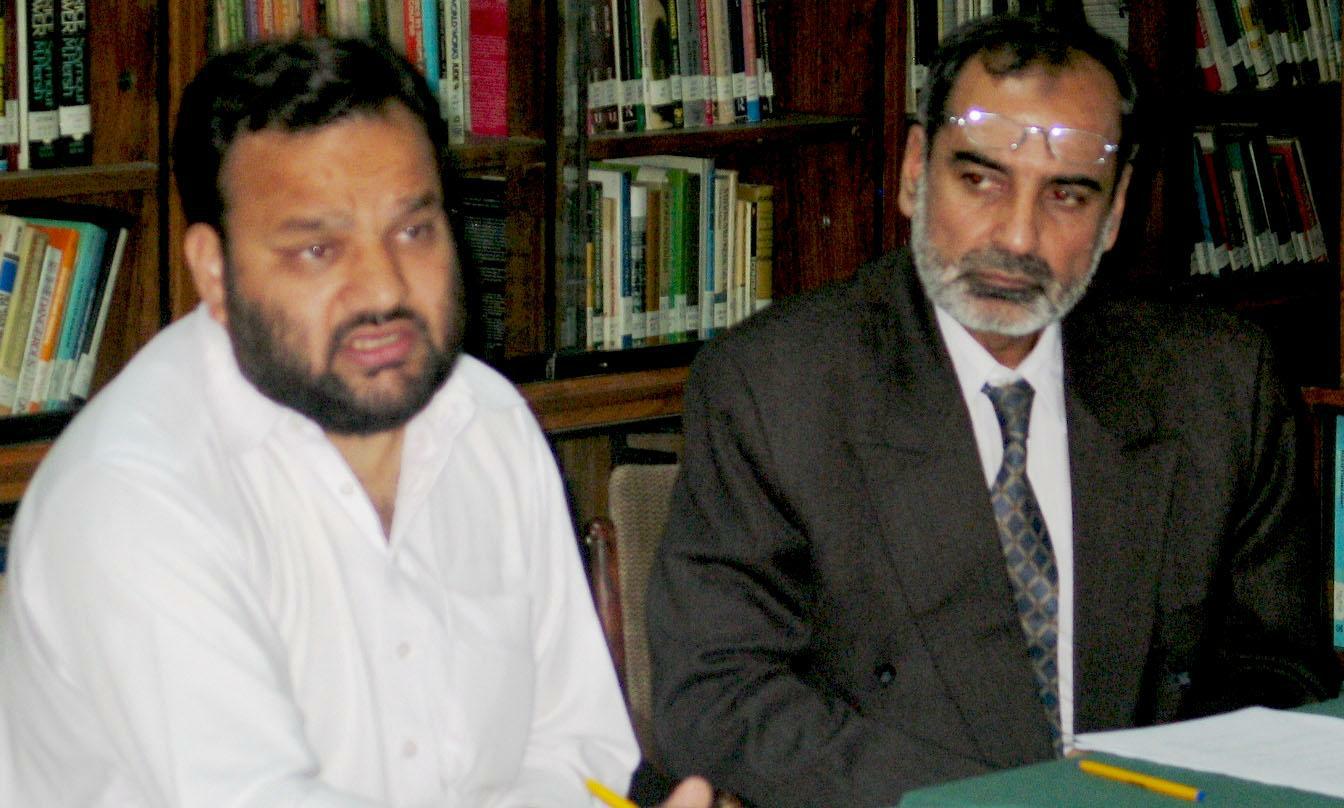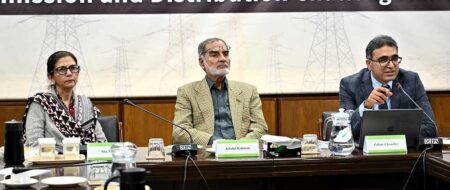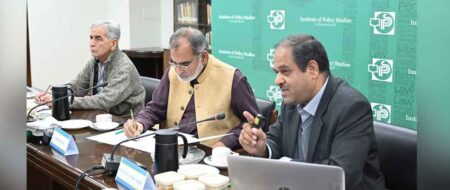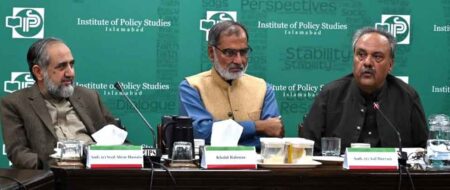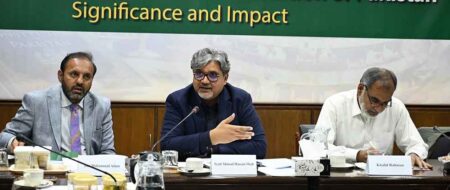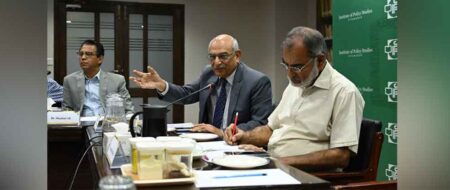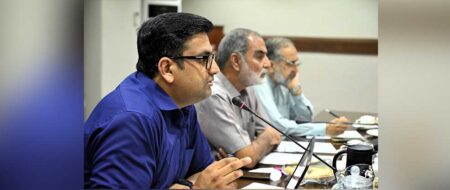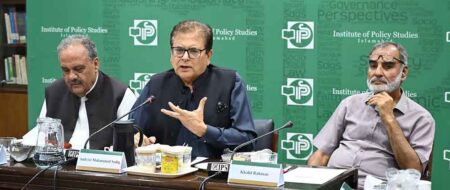In the first meeting of the SGGI-Working Group on ‘Women & Legislation’, Khalid Rahman, Director-General IPS, welcomed the participants and thanked them for being part of the working group. Mr. Rahman introduced the group as well as its vision and objectives.
In the first meeting of the
SGGI-Working Group on ‘Women & Legislation’,
Khalid Rahman, Director-General IPS, welcomed the participants and thanked them for being part of the working group.
Mr. Rahman introduced the group as well as its vision and objectives.
He reiterated that the ultimate objective of the whole exercise was to be establishment of an ideal society through strengthening of family institution. Emphasizing further he pointed out that the thought process in the group will use the local culture, common belief, domestic needs and indigenous value framework as its yardstick.
As to the composition of the group despite its smaller size, it reflects diversity. Members of the working group introduced themselves and mentioned their respective interests and expertise in the subject.
Prof. Muhammad Mushtaq Ahmad was selected as chairperson of the group and further proceedings were conducted by him.
Proposed outline prepared by Mr.
Nadeem Geelani was then put forth for the discussion and suggestions.
Participants expressed their satisfaction on the proposed outline and commented that it covered necessary aspects of the topic. The preamble of the outline presenting the underlying idea and approach of the group was found comprehensive and adequate. It was agreed that the preamble of the outline would make reference point in all subsequent discussions.
It was noted that the debate on women and legislation was conventionally confined to criminal law and that too relating rape. While there were host of other issues and questions that required increased attention and urgent action, including family laws and laws of inheritance. Attention was also drawn to the fact that customs and usages in our society normally override the law and even the religion. People remain hostage to these traditions which are for one reason or the other anti-women. This thinking will have to be shunned for real progress and betterment of society at large.
Constitution of Pakistan has guaranteed equality of men and women before law, yet it was proposed that the concept of equality should also be defined as it would form basis of the discussion. It was, however, underscored that as far as law was concerned balance in many cases was in favor of women; in tax exemption, allocation of special quota in jobs, iddat benefit, social security benefit and age of dependency were quoted as examples. Discrimination against women is a social problem more than legal. Law needed to play its role in bringing about and ensuring a positive change in social behaviors and societal construction.
It was also highlighted that current legislation was generally being made in disregard of the real concerns, requirements and values of society and was bound to result into disorder and discontent.
Allocation of quota for the women in all jobs is no solution to the problems of Pakistani society. This can merely be used as a political slogan and shall complicate the situation. It was suggested that such areas of activity should be identified for the women where they could excel to the maximum of their ability and contribute more positively and effectively to the national life. Special incentives and benefits could be proposed for women in such areas.
It was also agreed that the group was not meant to consider the issues and deliberate upon them in their stereotype and conventional spirit. Debates like, ‘who has a priority over the other’, have always hindered real progress towards evolving a balance, mutually beneficial and harmonious relationship between men and women.
Aim of the discussion was reiterated to prepare recommendations for different walks of life and stakeholders to reach the goal of establishment of a model society with strengthened family institution. It was, in this context, underscored that indigenous values and local conditions would form the basis of the discussion.
It was also mentioned that lawyers, jurists or legislators have to select from a number of available set of options and priorities have to be defined. This means preferring one thing on the other. Freedoms may some times have to be sacrificed for ensuring enhanced security, for example. Thus priority may differ in different cultures and civilizations. Model followed by other societies may offer useful information as a human experience but it may not always be worth-following in another society, especially when the value system and underlying ideology of different societies do not match.
Ms. Kiran Khan, could not attend the meeting of the working group but sent her suggestion in writing. She suggested that the working group should not only identify international conventions related to women’s rights but also prepare a summary of their basic contents. Conventions to which Pakistan is a party and those that are being considered for ratification should be given added importance. Internal and external factors affecting accession to these treaties and major countries supporting or opposing these treaties and conventions should also be considered at some length.
It was further suggested that a comparison of currently enforced Pakistani laws and provisions of international conventions to which Pakistan is a party with the provisions of Shariah should be made and such further rights should also be identified which have been granted to women by Islam but not been provided under current national/international arrangements.
Tuesday, April 28, 2009


